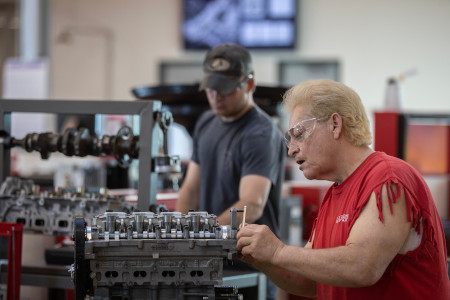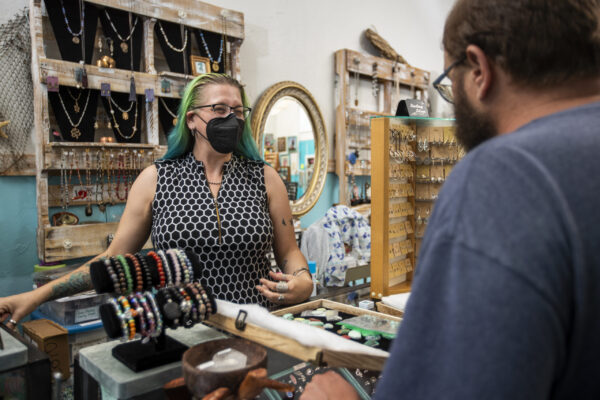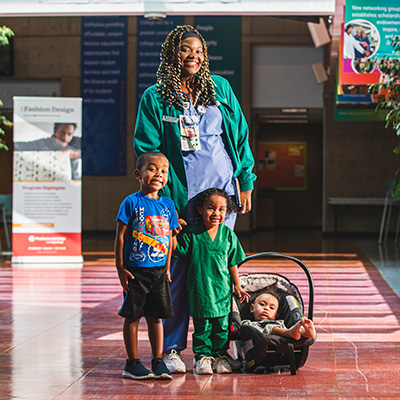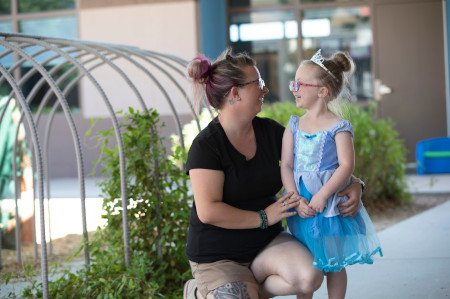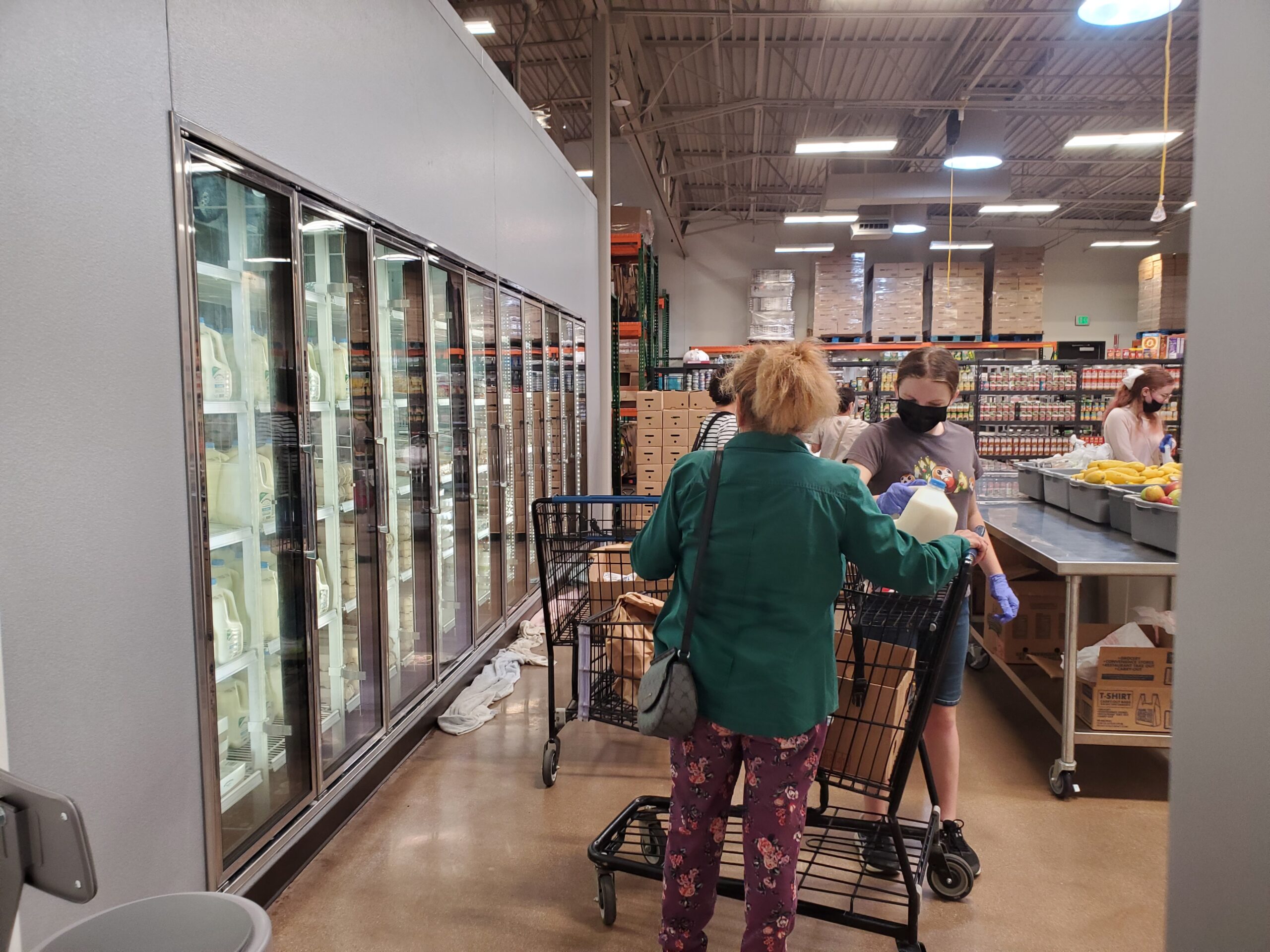
Sahuarita resource center provides much more than food
Looking at the Sahuarita Food Bank & Community Resource Center today, one can hardly imagine that this impressive, 14,300-square-foot facility got its start 14 years ago in the closet of a church.
The food bank has grown, in part, thanks to contributions from Pima County and the federal government. The County, for its part, donated roughly $800,000 over several years toward the construction of the new facility, which cost a total of about $5 million, according to Penny Pestle, president of the food bank’s board of directors.
The center’s main purpose, as the name implies, is to provide food for needy individuals and families. And if it only distributed food, that would be enough. However, the center, which opened in January 2022 and is located at 17750 S. La Cañada Drive, also offers:
-Help to veterans in applying for disability benefits;
-Cooking classes for people with diabetes or who are prediabetic;
-Language classes for people wishing to learn English or Spanish;
-Robotics training to youth;
-An intensive, five-week course to become a certified nursing assistant;
-A whole slew of classes to improve workforce skills;
-Utility assistance to qualifying families;
-Free tax preparation during tax season; and
Free notary services.
That list doesn’t include a variety of food services, like backpacks filled with food that go to some families twice a week, a partnership with the DoorDash food-delivery app that takes meals to homebound individuals or a program that helps seniors with limited resources get the extra food they need to remain healthy.
Like the biblical story of the mustard seed — which is one of the smallest seeds in nature but grows into one of the largest trees — the food bank has come a long, long way since it serviced one or two families a week out of a closet at the nearby Good Shepherd United Church of Christ.
Carlos Valles, the food bank’s executive director, said the nonprofit now serves approximately 1,600 families, or 6,200 individuals (some more than once), each month through its plethora of programs.
“We serve a lot of people from rural communities in Southern Arizona, from Douglas to Sells,” Valles said. “Many of them come to us instead of going into the city because we’re not a big entity and they know they won’t get lost here. We’re offering a lot of wraparound services that the community needs.”
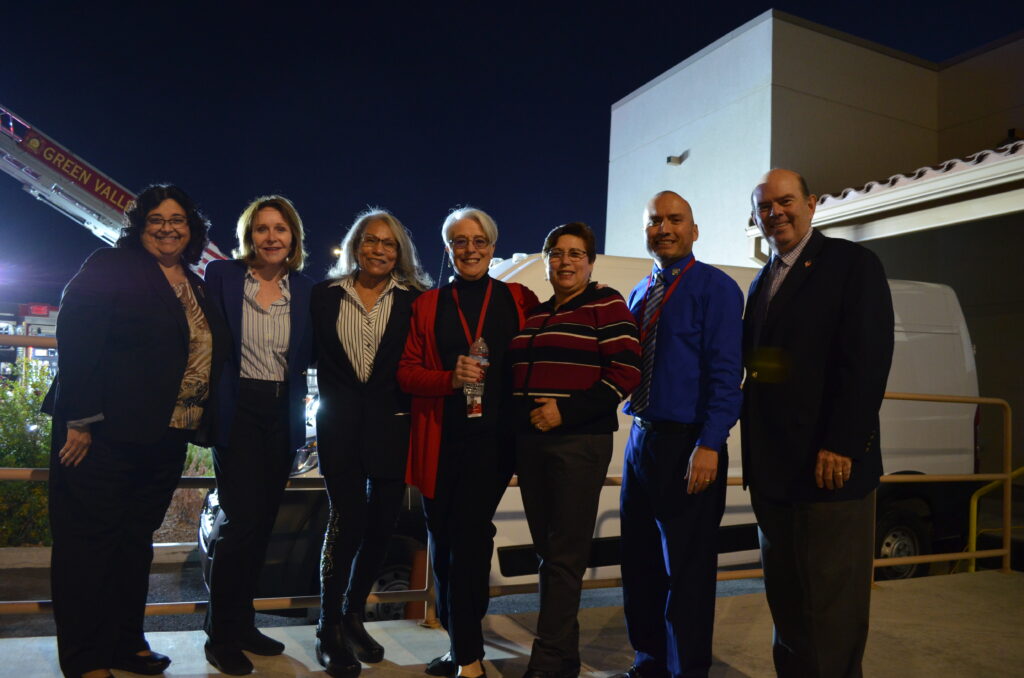
Lesher, resource center client Nelwin Boyd, SFB-CRC Board President Penny Pestle,
resource center client Mariza Griego, SFB-CRC Executive Director Carlos Valles and
Sahuarita Mayor Tom Murphy at the resource center’s open house in November 2022.
In 2021, Pima County awarded $600,000 to the Arizona Food Bank Network from its allocation of federal Coronavirus State and Local Fiscal Recovery Funds (CSLFRF). The food bank network is a nonprofit organization that supports its coalition members, which includes regional food banks, local pantries and community based organizations across Arizona.
The network utilized Pima County’s funding to establish a grant program for Pima County-based food banks and pantries responding to increased food insecurity resulting from the COVID-19 pandemic. The Sahuarita food bank applied for and received $20,000 in CSLFRF funding through the AZFNB grant program, which helps its coalition members to maintain and /or expand capacity to meet increased emergency food needs among community members coping with unemployment and other financial losses.
“We would not be here without the financial help of Pima County,” Pestle said.
One of the center’s services that Pestle and Valles proudly speak about is a program that trains people to become certified nursing assistants, or CNAs. The program recently graduated its first cohort of three CNA students. The second cohort will begin classes soon with seven students.
“The purpose of the community resource center is to help people move forward in their lives, and the CNA program is one of the ways in which we do that,” Pestle said. “We want to equip students with the skills and resources they need to become financially stable and contribute to their families and the community.
“Sahuarita, in the past, has been a service desert in many ways. The community service center has changed that. We’ve been able to cluster services in a one-stop hub to help people in a variety of ways.”
Daniel Tylutki, who was a deputy director in the Pima County Community & Workforce Development Department, was a driving force behind the creation of the center. Tylutki passed away in March 2021 before the facility was completed later that year, but he has not been forgotten. One of the main rooms at the facility carries his name and the food bank marked the naming of the room for Tylutki during an open house in November.
“I think what I appreciate most about this facility in regard to Pima County is that this was Danny’s project, but after he passed away, the County team collectively stepped up to make sure it was completed,” Valles said. “Their mentality was, ‘This is for Danny!’ They didn’t let this project fall through the cracks.”
Added Pestle: “Danny was very representative of the very best of Pima County. He was very much a stickler for doing what was required to get this place built, but he made the County a pleasure to deal with. I think it’s important for people to know in this day and age when people vilify government so much.”

of the Sahuarita Food Bank & Community Resource Center.
The center and Pima County were recognized last September with an award from the National Association for County Community and Economic Development in the “community development” category. NACCED said the center has grown 20% to 30% each year since its inception in 2009 and “is serving more residents than ever because of high rents, high inflation in the prices of food, and the cessation of special COVID-19” funds to families.
Valles said the center will continue to do its best for the citizens of Southern Arizona, especially those in rural communities.
“Nonprofits will always say that the ultimate goal is for us to cease operations. We want our community to do well,” Valles said. “However, the reality is that as long as there have been people on earth there has been poverty.
“Every family that we’re helping, we want them to be economically stable. And that takes more than just food aid. Food is not the root cause of their poverty. We want to figure out what is causing these families to need help in the first place, and then we’ll address those issues.”
Sorry, the comment form is closed at this time.

